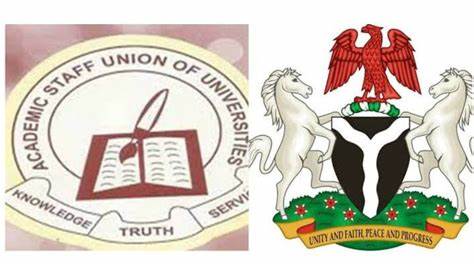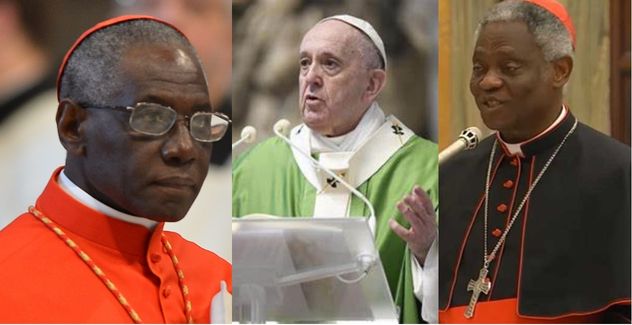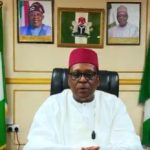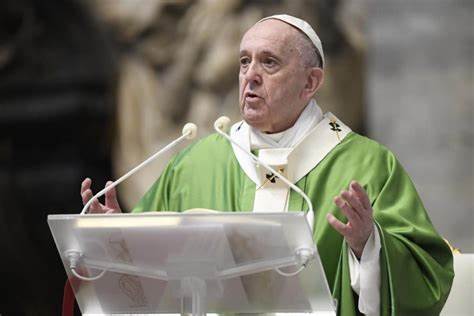In confronting inflation and other economic challenges, Governor of the Central Bank of Nigeria (CBN), Olayemi Cardoso, recently cleared the air and noted that the present CBN management was not responsible for the present economic woes, but he said that they were working hard to find solutions to the problems and promised that they would not betray trust.
Earlier at another forum, Cardoso had also noted that CBN would re-caliberate its policy toolkit and assured that the economy would experience significant stability in the short to medium term.
Join our WhatsApp ChannelREAD ALSO:
- Why CBN’s 22.75% MPR Hike Can’t Tame Inflation In Nigeria – CCPE
- Economic Crisis: CBN’s 22.75% Benchmark Interest Rate Good For Tackling Inflation – Moghalu
- CBN Raises Benchmark Interest Rate To 22.75%
The two major and critical challenges of the economy are escalating inflation and high exchange rate both of which have conspired to bring hardship to households. Inflation hurts our buying power and makes it difficult for people to afford basic necessities of life. It can also destabilize an economy and drive out foreign investors due to exchange rate fluctuations.
READ ALSO: How CBN’s New Monetary Policy Rate Will Affect Businesses In Nigeria – Economic Experts
Central banks have phobia for inflation and would do everything possible to rein it in. Inflation management is a technical and tactical thing. The US Fed uses a ‘’stop-go’’ monetary policy tactics, and prefers to keep Fed funds rate at between 2 and 5 per cent known as the “sweet spot’’ to maintain a healthy economy.
CBN had in the past adopted a combination strategy of a tight monetary policy and strident effort to boost the productive capacity of the economy for balance, and some analysts had noted that boosting the supply side gives an economy the energy to grow without suffering from acceleration in cost and price inflation.
Recently, CBN raised the Monetary Policy Rate (MPR) from 18.75 per cent to 22.75 per cent in an effort to control the escalating inflation which is presently at 29.9 per cent. The MPR is the rate at which CBN lend to banks. The increase is to combat inflation by reducing borrowing, encouraging savings and controlling the quantity of money in circulation.
CBN also raised the Cash Reserve Ratio (CRR) from 32.5 per cent to 45 per cent and retained the Liquidity Ratio (LR) at 30 per cent. CRR is the percentage of deposits banks must keep with CBN, and increased CRR limits the ability of banks to grant loans, which in turn helps to reduce the volume of money in circulation towards decreasing inflation.
Liquidity Ratio is how much cash a bank holds relative to its liabilities. An increased LR means that banks will have less cash for lending which also reduces the quantity of money in circulation which in turn reduces inflation.
Former CBN Deputy Governor, Professor Kingsley Moghalu commended the increase in MRR and noted that it would however hit businesses hard, but that inflation was hitting harder, thus the need to control it.
He said: “we must slay the inflation dragon lest it consume our economy and we head to Zimbawe/Venezuela. The money supply must be reduced, price stability must take priority before economic growth in the current situation.’’
Professor Moghalu’s views corroborates that of Professor Milton Friedman, a great economist and monetarist who had advised former US President, Ronald Reagan and former UK Prime Minister, Margaret Thatcher. Professor Friedman advised economists and policy makers not to try to stimulate economic growth at the cost of just a little more inflation.
CBN Governor Cardoso and his team has launched an aggressive fight against inflation just like Paul Volcker, a former US Fed Chairman (1979-1987) did. Volcker pushed interest rate so high that it threw the economy into recession, but he persisted and at a certain threshold inflation rate dropped from 14 per cent to 9 per cent and progressively to 6 per cent and finally to 4 per cent and Volcker became a hero.
Will CBN achieve a similar result if it follows the Volcker pattern? Will a sustained increase in the MPR succeed in controlling inflation in the context? That will depend on the underlying causes of inflation in the economy.
The present inflation is not demand-pull but cost-push, occasioned by the increase in the price of fuel, high exchange rate. It is also caused by increased money supply by the government. Experts have noted that governments can induce inflation when they increase money supply at a much greater rate than the growth rate of the GDP, thus the need for governments to maintain fiscal responsibility.
Former CBN Governor, Sanusi Lamido Sanusi had noted that the immediate past administration of Muhammadu Buhari badly managed the economy. He said that “in the last eight years, the Central Bank continues to print more money and the naira continues to depreciate.’’
Also, there seems to be too much money outside the banking system and which is unhealthy for the economy. CBN may wish to determine the exact quantum of money both within and outside the banking system and ensure the circulation of the right quantity to maintain a healthy economy.
Previous data from CBN show that in 2015 currency in circulation was only N1.4 trillion, and it rose to N3.23 trillion in October, 2022, out of which only N500 billion was in the banking system. Before the implementation of the failed demonetization (Naira redesign) policy in 2023, N2.7 trillion was outside the banking industry. But through the policy, CBN, reportedly recovered N1.9 trillion and reduced the quantity in circulation outside the banking system to N900 billion.
Demonetization is a drastic intervention policy which central banks use to curb a surplus and cyclonic flow of underground money outside the banking system. It is also used to fight inflation, stabilize the currency, reduce tax evasion, increase tax revenue and boost the formal economy. It was used in Zimbabwe in 2015 to fight hyperinflation.
However, demonetization is a risky policy tool which can plunge the economy into chaos if it fails, as we witnessed in 2023. But if it is successful, it can be very beneficial to the economy in many ways.
Nwobu, a Chartered Stockbroker and Policy Analyst wrote via arizenwobu@yahoo.com Tel: 08033021230.


















Follow Us